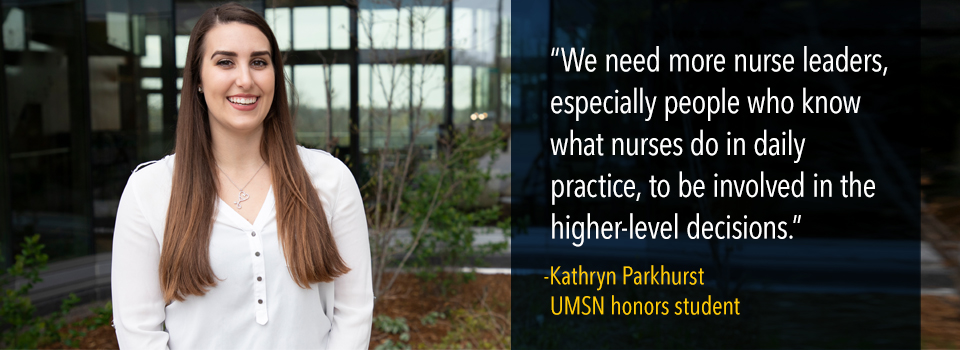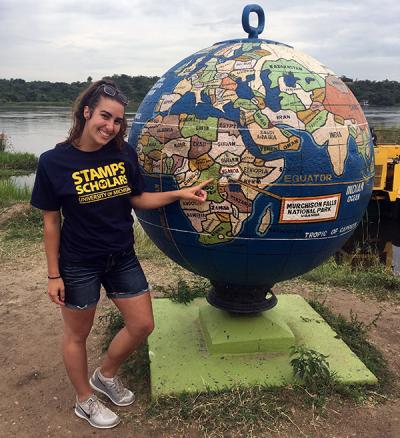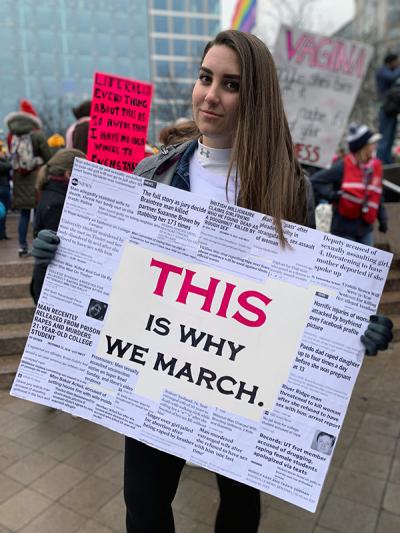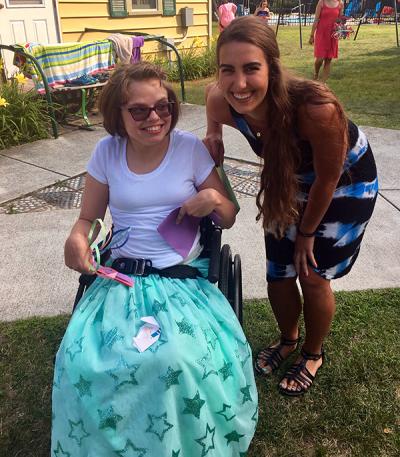Student spotlight: Understanding the business of health care to create change from within

Nursing students are known to have some of the busiest schedules, but University of Michigan School of Nursing (UMSN) Honors Student Kathryn Parkhurst isn’t letting that deter her from taking on extra challenges to benefit her future career and patients. She’s following an uncommon academic path by pursuing a minor in business administration.
“My plan is to work a few years at the bedside to get direct patient care experience and then go towards policy or administration,” said Parkhurst. “We need more nurse leaders, especially people who know what nurses do in daily practice, to be involved in the higher-level decisions.”
Parkhurst hopes supplementing her BSN with a business minor will help her be more effective in advocating for equitable access to quality health care.
 “So often people can’t afford the care that they need or they don’t have access to it,” she said. “That’s one thing I’d like to work on changing.”
“So often people can’t afford the care that they need or they don’t have access to it,” she said. “That’s one thing I’d like to work on changing.”
Going global
Parkhurst says the business minor has been a challenge at times, but it’s also added valuable opportunities such as an upcoming global experience in Croatia with U-M’s Ross School of Business.
“The project is working with cross-cultural negotiations in conflict dispute resolution,” she explained. “This is through a business lens but it’s a skill that’s very applicable to nursing because you work with so many different cultures. Families and health care teams may not see eye-to-eye on what they think is best for the patient so it’s about working through those things.”
The Croatia trip will be the second global experience for Parkhurst who traveled to Uganda in 2018 through U-M’s Minority Heath and Health Disparities International Research Training (MHIRT) program.
“That project focused on non-communicable diseases,” she said. “During those 12 weeks, we traveled to different regions to administer a 72-item questionnaire. We worked with the village health workers who would help us, especially if the people didn’t speak English. When they did speak English, we were able to get more of their stories which was always really interesting.”
Owning feminism
 Learning about people from different backgrounds is important to Parkhurst. After growing up in a small town, she knew she wanted to attend a large university with extensive collaborative opportunities on campus and globally.
Learning about people from different backgrounds is important to Parkhurst. After growing up in a small town, she knew she wanted to attend a large university with extensive collaborative opportunities on campus and globally.
“It’s easy to walk in with preconceptions,” she explained. “But when you really see how people live and what their normal is, it makes you realize there isn’t just one right way to do things.”
Through these experiences, Parkhurst developed an increasing commitment to equal rights and serves as vice president of a non-traditional sorority.
“We’re an intersectional feminist sorority called Zeta Omega Eta,” she said. “People get scared of the term feminist but we’re just a group of people advocating for equality whether that be within sexes, cultures or different ethnicities, just equal rights for everyone.”
Parkhurst’s participation in the group led to her first Women’s March in Washington, D.C.
“There are lot of different things people are protesting at these events – some are political, some are personal,” she said. “It was fascinating to see everyone come together and stand up for our issues.”
The experience increased her awareness of how people process traumatic events.
“Just about every female has experienced some sort of unwelcome comments or actions,” she said. “It’s not for us to say what experiences are more traumatic than others. Our nursing school has done a lot to teach us about trauma-informed care and I think it’s important as future nurses.”
Stamps scholarship
Parkhurst also sees value in pushing herself out of her comfort zone, such as working at a camp for children with disabilities.
 “I wanted something that would help my nursing skills but not necessarily a hospital job,” she said. “I didn’t have a ton of experience working with people with disabilities but I got a job at Camp Grace Bentley. It was the best summer I’ve had and it encouraged me to do more.”
“I wanted something that would help my nursing skills but not necessarily a hospital job,” she said. “I didn’t have a ton of experience working with people with disabilities but I got a job at Camp Grace Bentley. It was the best summer I’ve had and it encouraged me to do more.”
After that experience, Parkhurst was inspired to join the U-M chapter of Best Buddies, an organization that pairs students with community members who have mental or physical disabilities in order to create meaningful friendships.
Rounding out her busy schedule, Parkhurst plays club volleyball, has participated in interdisciplinary education events and is working on a new research project examining women with disabilities and their decisions about reproductive health.
She credits the merit-based Stamps Scholarship as a key reason she’s able to participate in so many U-M opportunities.
“It covers the full cost of attendance,” she explained. “I probably wouldn’t be at Michigan without this scholarship, let alone be able to do all these things. I knew that since I came from a small high school I wanted to come to a big school with lots of new people, clubs, global experiences and research opportunities, and I’ve gotten that at U-M.”





